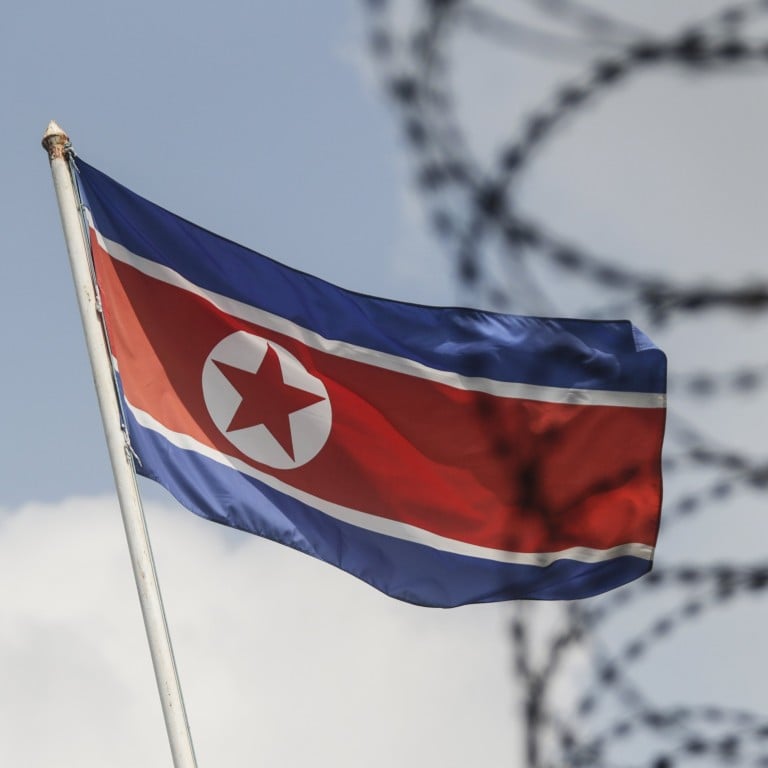
Deaths of destitute North Korean mother and child spark national soul-searching in wealthy South Korea
- The story of a defector who appeared to have starved to death with her son in Seoul has thrown a spotlight on the plight of North Koreans in the South
- Many defectors risk their lives to flee the North, only to face discrimination and further deprivation in hyper-competitive South Korea
By the time Han, a North Korean defector, and her six-year-old son were found at their rented flat in southwestern Seoul, they had been dead for weeks.
The building manager who found the bodies made the grim discovery only after being alerted to a strange smell. The water to the flat had been cut off due to unpaid bills, and the fridge was empty but for some chilli flakes.
The 42-year-old mother, who fled poverty in North Korea a decade prior, had made her last withdrawal of 3,858 won (US$3) from her South Korean bank account in May, according to police. While the results of an autopsy have yet to be revealed, the authorities found no evidence of foul play or suicide and said this week Han and her child likely starved to death.
It brings tears to our eyes that this North Korean defector was a victim of starvation and could die in this way in Seoul.
Many South Koreans have been asking how anyone – least of all a person who escaped from one of the world’s most oppressive regimes – could meet such a tragic end in a country that claims to be a safe harbour for its ethnic brethren in the North and boasts a GDP per capita similar to that of Italy.
“Where were we?” state-funded Yonhap News asked of South Koreans in a plaintive headline published on Wednesday.
“Was there no chance to save them?” asked Readers’ News, a newspaper headquartered in Seoul.
“It brings tears to our eyes that this North Korean defector was a victim of starvation and could die in this way in Seoul,” said Moon Seong-ho, a spokesman for the conservative opposition Liberty Korea Party, on Tuesday.
Much scrutiny has landed on apparent gaps in the country’s modest welfare system.
While Han, who divorced her Chinese-Korean husband earlier this year, had been receiving 100,000 won (US$82) in monthly child support from the government, she had not applied for other allowances she was entitled to, according to local welfare officials.
Amid a mounting backlash, the Ministry of Unification, which handles the resettlement of defectors, pledged to address “blind spots” that may keep people from receiving help they need.
“The government needs to more actively inform them of the social security system they can use to make a living,” said Lim Jae-Cheon, a North Korea studies professor at Korea University in Seoul. “It also needs to check the financial situation of defectors in South Korea more closely.”
Despite receiving automatic citizenship and help with housing and basic necessities, many North Koreans struggle to thrive in the hyper-competitive South, where a college degree is considered a prerequisite for even basic entry-level jobs.
The roughly 32,000 defectors in the South earned on average just three-quarters of the average pay of 2.56 million won (US$2,120) last year, according to the Korea Hana Foundation, an affiliate of the Ministry of Unification.
Life after Kim: inside the schools catering to North Korean defectors
Often isolated as outsiders or even communist spies, more than half of defectors have reported suffering discrimination, and government statistics collected in 2015 found that they were more than 20 percent more likely to take their own lives than the general population.
“I was very self-conscious with my North Korean accent when I arrived here,” said Ken Eom, a former North Korean military officer who defected in 2010. “Most North Korean defectors are struggling right now.”
Some critics have accused President Moon Jae-in’s left-leaning government of neglecting defectors to advance rapprochement with Pyongyang, which considers those who flee the regime to be traitors deserving of imprisonment or even death.
The tragic life of a North Korean defector
In an editorial published on Thursday, the Daegu Shinmun newspaper called on the government to stop formulating its policy on defectors “with an eye” to how the North might react.
“President Moon doesn’t talk about human rights in North Korea,” said Ha Tae-kyung, a lawmaker for the centre-right opposition Bareunmirae Party, on Tuesday.
“He even ignores defectors who are our own citizens. Instead he only thinks about relations between North and South,” he said.
The hurt is overwhelming, it feels like my heart has been ripped from my chest.
The rawest emotions over the deaths of Han and her son, however, have been expressed by defectors themselves, who know first-hand of the sacrifice and risk involved in fleeing the North for the chance of a better life.
“To come to the same land of your people to escape hunger and find freedom, and then starve to death – can you conceive of such a thing?” said Jung Gwang-Il, a North Korean prison camp survivor who escaped to the South in 2004.
“The hurt is overwhelming, it feels like my heart has been ripped from my chest.”
An earlier version of this article misstated that North Korean defectors had a suicide rate that was three times higher than that of the general population. The suicide rate was in fact 20 per cent higher.

